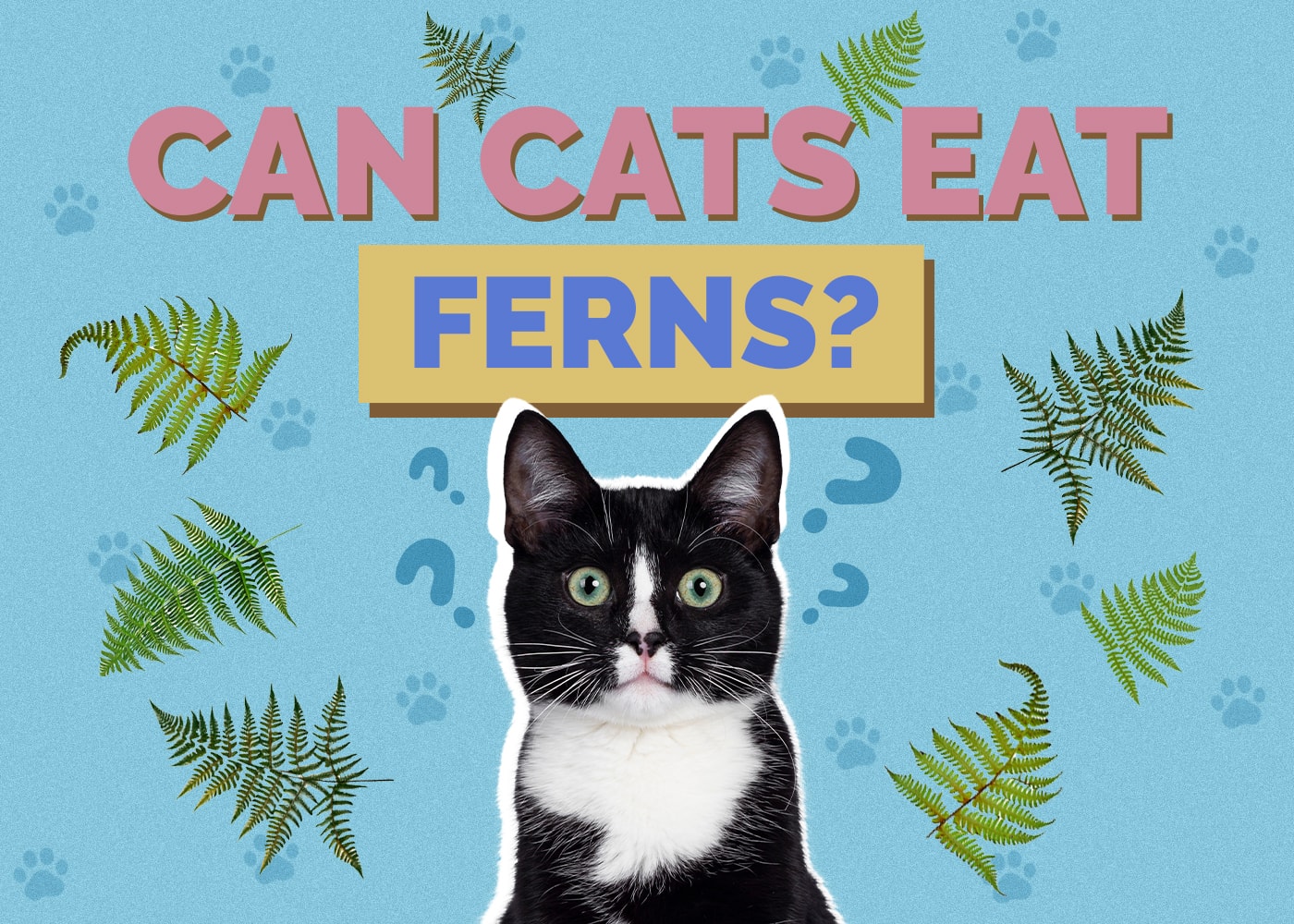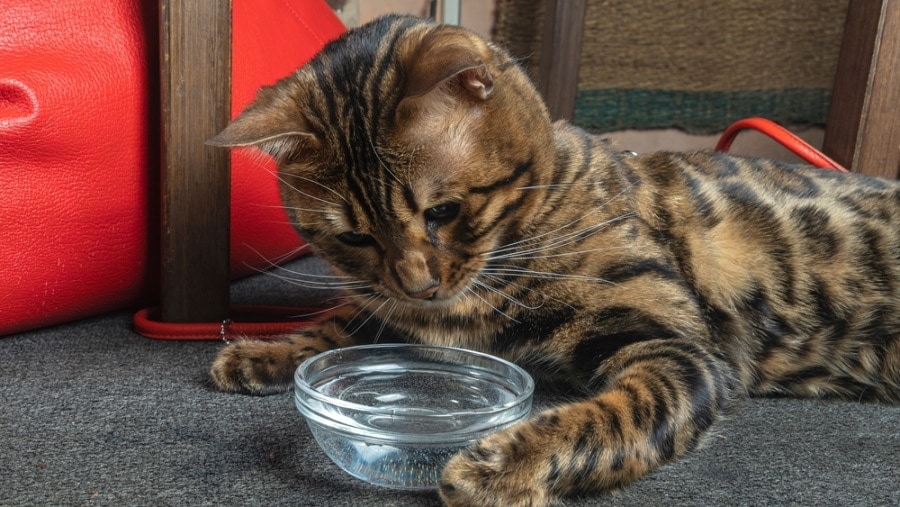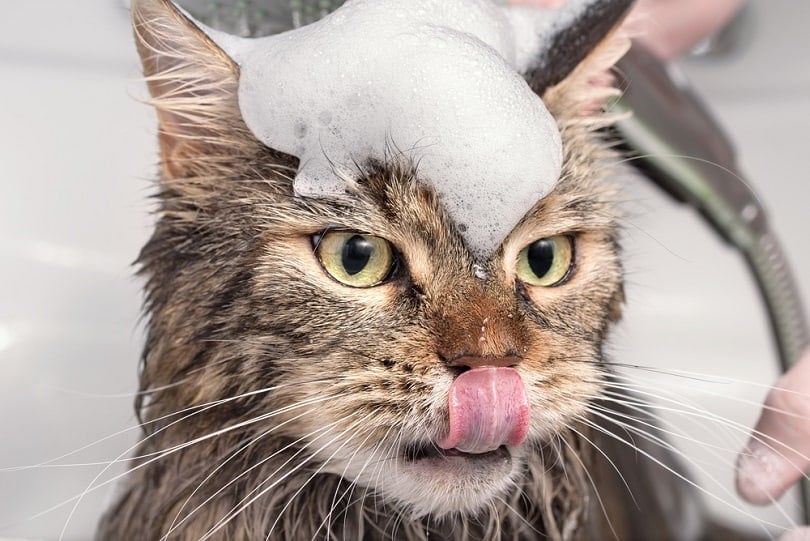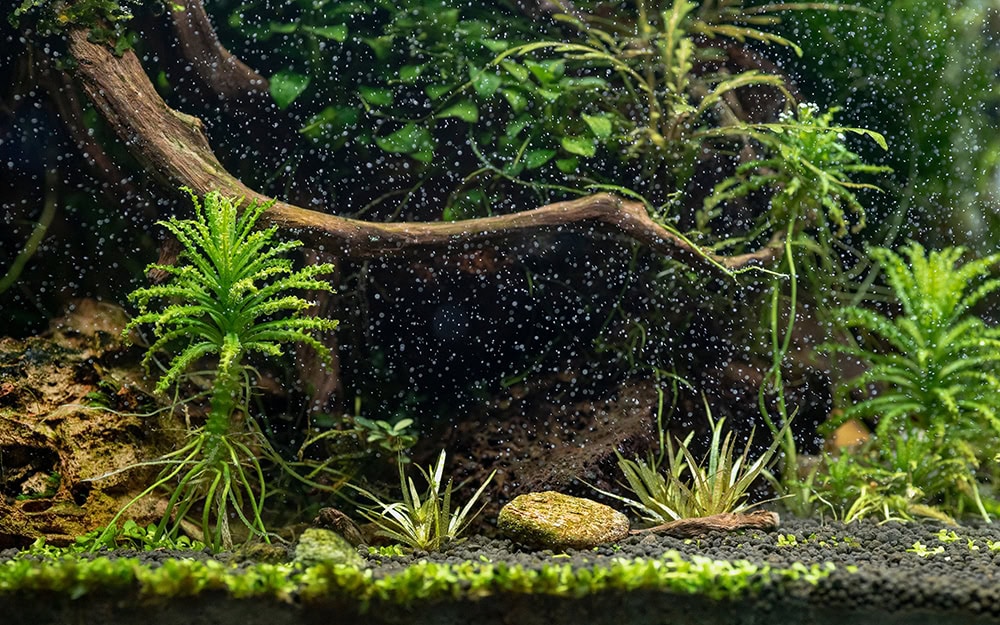Are Bonsai Trees Poisonous To Cats? Risks & Safety Tips
Updated on
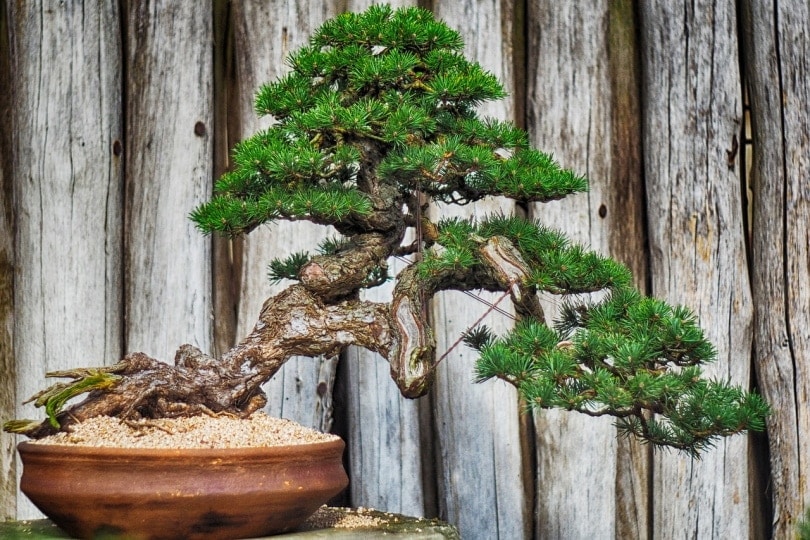
As the product of ancient gardening techniques developed in Asia, bonsai trees are truly unique house plants. As with any plant, however, cat owners must do their research before adding a bonsai tree to their household. Are bonsai trees poisonous to cats?
Because bonsai trees can be created from several species, the answer to this question isn’t straightforward. It depends on the type of bonsai tree. However, many of the most popular trees grown as bonsais are toxic to cats. In this article, we’ll let you know which common bonsai trees are poisonous to cats and if any species are safe for our feline friends.
What Are Bonsai Trees?
Bonsai, which means “tray-planted” in Japanese, is a method of growing dwarf trees in containers to resemble the shape of full-grown ones. To accomplish this, the grower uses various pruning methods on the roots and branches. They also use wires to train the branches into the desired shape.
Bonsai originated in China about 1,000 years ago, but the Japanese perfected the art. Since bonsai trees can be grown from many species, we must look at the individual plants to determine whether bonsai are poisonous to cats.
Common Bonsai Trees Poisonous To Cats
1. Ficus
Ficus trees are popular indoor plants that can be grown as bonsai trees or allowed to reach full size. All ficus species are considered toxic to cats because they contain an irritating sap.
The sap can irritate the cat’s mouth, skin, or digestive tract if ingested. Common signs of poisoning include drooling, skin rash, vomiting, and diarrhea.
2. Juniper
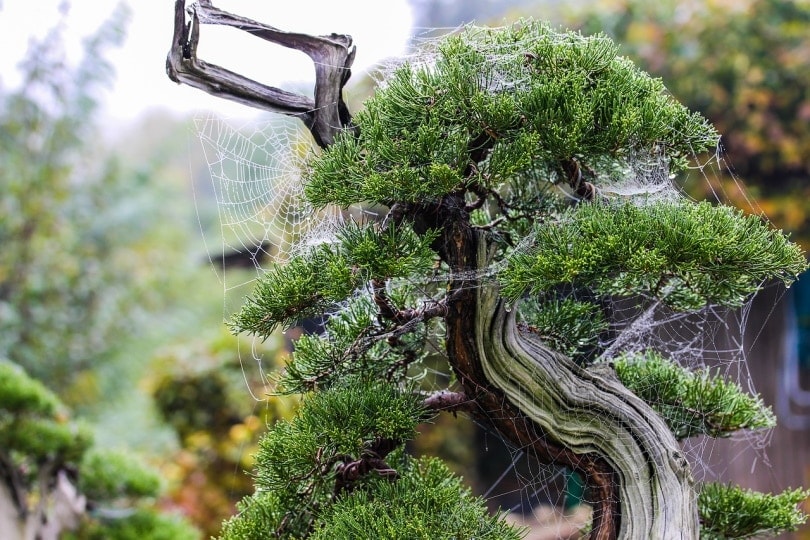
Juniper plant species are another of the most common bonsai trees. They are considered mildly toxic and may cause vomiting and diarrhea. Because the plants cause milder reactions, some cat owners grow the trees.
3. Pines
Several pine species are popular as bonsai trees because they are easy to care for and manipulate. However, pine trees are not safe for cats. Pine needles are sharp and can puncture the cat’s mouth, tongue, or stomach. The sap of pine trees is also toxic, causing vomiting, diarrhea, and the potential for long-term kidney and liver damage.
4. Japanese Flowering Cherry
Since they’re beautiful and easy to train, Japanese flowering cherry trees are popular bonsai species. Unfortunately, cherry trees of any variety are toxic to cats. The leaves, seeds, and stems contain cyanide, which can be life-threatening if ingested. Signs include trouble breathing, brick-red gums, and dilated pupils.
5. Dwarf Jade
Dwarf jade, also known as the rubber plant, is often recommended for beginner bonsai enthusiasts. However, jade plants are poisonous to cats. The signs of jade plant poisoning include vomiting and neurological signs like incoordination and depression.
Bonsai Trees Safe For Cats
Before you decide not to keep a bonsai tree in your cat-friendly household, check out these safer options. Remember, even non-toxic plants could still upset your cat’s stomach if they eat too much of it. Here are some bonsai plants generally considered pet-friendly:
Before adding any new plant to your household, double-check with your veterinarian.
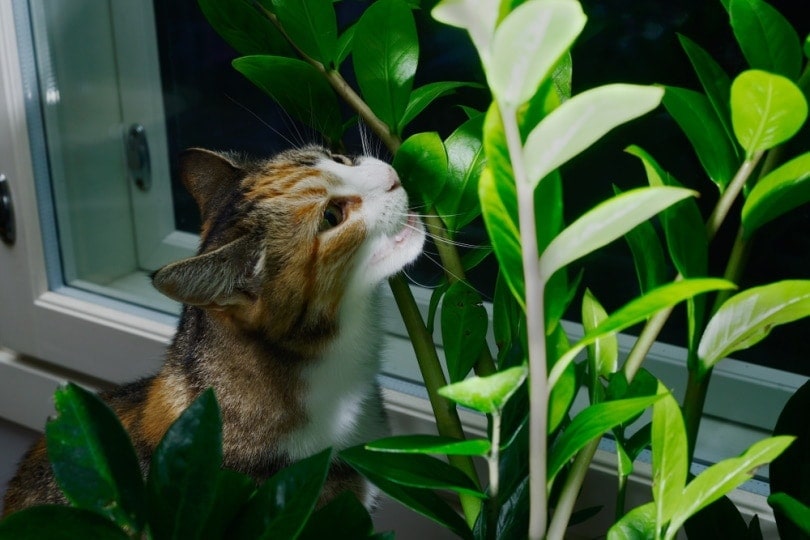
Keeping Your Cat Safe From Bonsai Trees
As we discussed, the best way to keep your cat safe is to avoid growing a toxic bonsai tree. Another option, depending on the climate where you live, is to choose a bonsai tree that thrives outdoors. If your cat only lives indoors, you can safely enjoy a bonsai outside.
Even if you grow a non-toxic bonsai, there are still risks you’ll need to consider. We already mentioned that eating too much of any plant could make a cat sick. Their digestive systems aren’t meant to process plant materials, especially not in large quantities.
Cats could also knock over the bonsai plant’s container and break it, which could cause an injury from glass or ceramic shards. Some components of potting soil or fertilizers may also be toxic.
It’s also worth noting that cats can harm bonsai trees. A cat can easily chew the thin leaves and branches of the bonsai tree or disturb the wires used to train the tree, destroying your work.
Conclusion
Crafting a bonsai tree is a rewarding and challenging project for beginner and advanced gardeners. For homes that also contain cats, the challenge is even more significant. Many popular bonsai trees are toxic to cats, but safe alternatives exist. Before you embark on your bonsai adventure, make a plan to ensure your cat stays healthy and your hard work doesn’t go to waste at the paws of a destructive feline.
Featured Image Credit By: scartmyart, Pixabay





